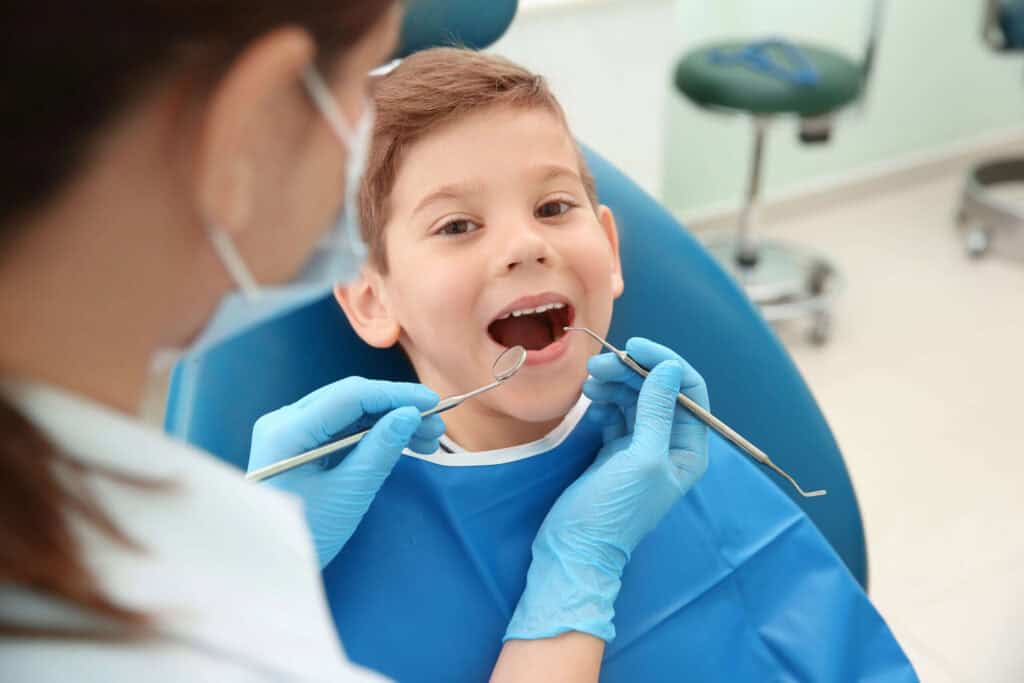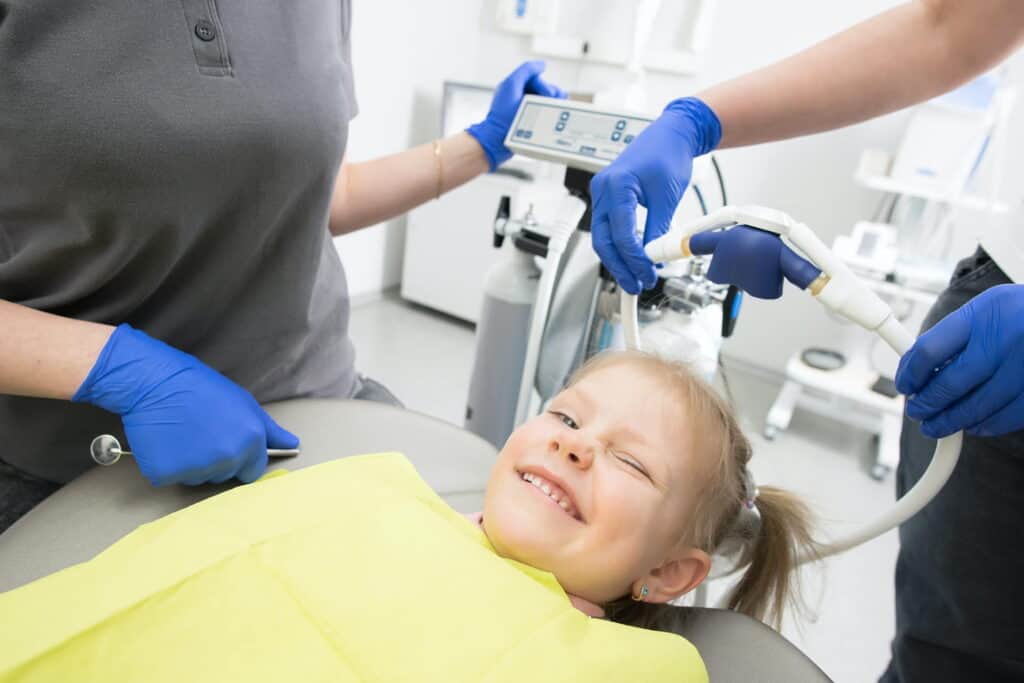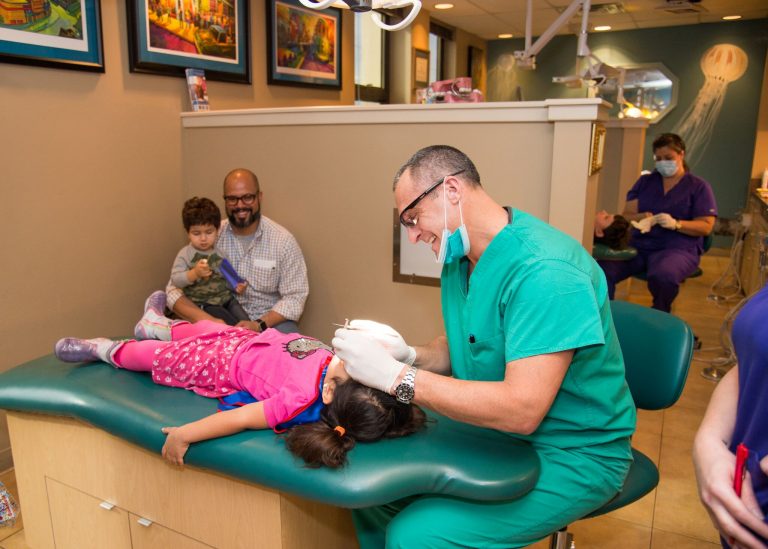When it comes to your child’s health, every parent wants to make sure they’re doing everything they can to ensure their well-being. One area that often gets overlooked is pediatric dentistry. Oral health is a critical component of overall health, and it’s essential to start fostering good habits from a young age. In this comprehensive guide, we’ll answer some of the most common questions about pediatric dentistry to help you make informed decisions for your child’s dental care.
What is Pediatric Dentistry?
Pediatric dentistry focuses on the oral health of infants, children, adolescents, and individuals with special needs. Pediatric dentists undergo additional training beyond general dentistry to specialize in treating the unique dental issues that children face. They are trained to create a comfortable and friendly environment to make children feel at ease during dental visits.
Why is Pediatric Dentistry Important?
According to the Centers for Disease Control and Prevention (CDC), tooth decay is one of the most common chronic conditions among children in the United States. Approximately 20% of children aged 5-11 have at least one untreated decayed tooth. Untreated dental issues can lead to pain, infection, and problems with eating, speaking, and learning. Therefore, early dental care is crucial for long-term oral health.

When Should My Child First Visit the Dentist?
The American Academy of Pediatric Dentistry (AAPD) recommends that children visit the dentist by their first birthday or within six months after their first tooth erupts. Early visits help in identifying any potential issues and establishing a dental home for the child, making future visits less stressful.
What Happens During the First Visit?
The first visit is usually short and involves very little treatment. The dentist will check all of your child’s existing teeth for decay, examine their bite, and look for any potential problems with the gums, jaw, and oral tissues. You will also be educated on basic oral health care for children and may discuss topics like teething, fluoride, and proper nutrition.

How Often Should Children See a Dentist?
The general recommendation is for children to visit the dentist every six months for regular check-ups and cleanings. However, the dentist may suggest more frequent visits if your child is at a higher risk of tooth decay or other oral health issues.
What About Dental Procedures for Children?
Common dental procedures for children include:
- Cleanings: To remove plaque and tartar.
- Fluoride Treatments: To strengthen enamel.
- Sealants: To protect the chewing surfaces of the back teeth.
- Fillings: To treat cavities.
- Orthodontic Evaluations: To assess the need for braces.
How Can I Prepare My Child for a Dental Visit?
Preparation can make a significant difference in how your child perceives dental visits. Here are some tips:
- Talk Positively: Use positive language when discussing the dentist.
- Role Play: Pretend to be the dentist and patient with your child.
- Read Books: There are many children’s books about visiting the dentist.
- Choose the Right Time: Schedule appointments when your child is well-rested.
How Can I Foster Good Oral Health Habits?
- Brush Twice a Day: Use fluoride toothpaste and a soft-bristled toothbrush.
- Floss Daily: Floss between teeth where the toothbrush can’t reach.
- Healthy Diet: Limit sugary foods and drinks.
- Regular Check-ups: Maintain regular dental visits.
Pediatric Dentistry is Essential
Pediatric dentistry is an essential aspect of healthcare that should not be overlooked. From the moment your child’s first tooth appears, proactive dental care becomes a crucial part of their overall well-being. Pediatric dentists, with their specialized training, are uniquely equipped to guide your child through the various stages of oral health, from infancy to adolescence.
The importance of early dental visits cannot be overstated. As highlighted by the CDC, tooth decay is a prevalent issue among children, making early intervention vital. The AAPD recommends that the first dental visit should occur by the child’s first birthday or within six months after the first tooth erupts. This early introduction helps in identifying potential issues and sets the stage for a lifetime of good oral health.
Regular check-ups, typically every six months, allow for timely interventions and preventive measures, such as cleanings, fluoride treatments, and sealants. These visits also provide an opportunity for parents to learn about fostering good oral hygiene habits at home, including brushing, flossing, and maintaining a balanced diet.
In summary, pediatric dentistry is not just about fixing teeth; it’s about establishing a strong foundation for a lifetime of oral health. By understanding its importance, preparing your child for dental visits, and implementing good oral hygiene practices, you can ensure that your child’s smile remains bright and healthy for years to come.
- About the Author
- Latest Posts
Dr. Jason Parker, a distinguished dentist based in New Orleans, was honored with the New Dentist Award by the Louisiana Dental Association in 2008 for his contributions to both the dental profession and the community. With a background in biology and business administration, Dr. Parker has been in private practice since 2001 and specializes in pediatric dentistry


